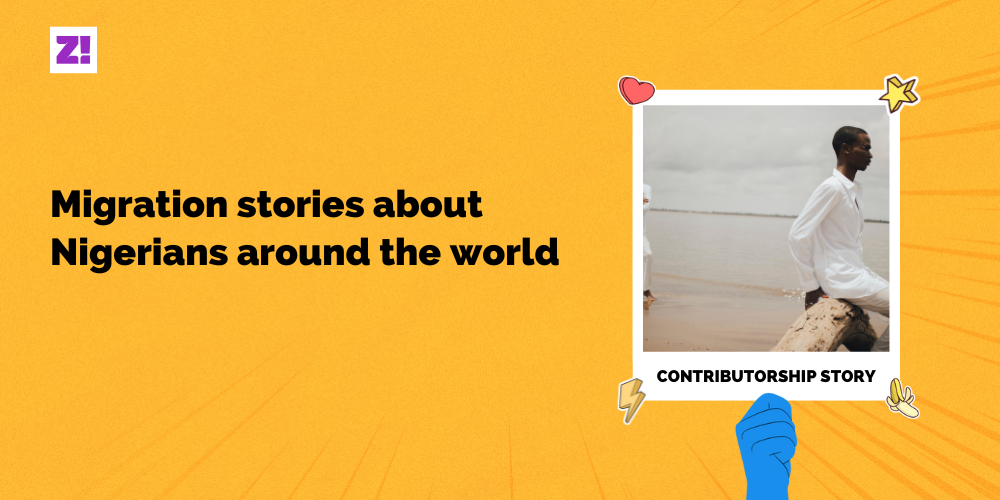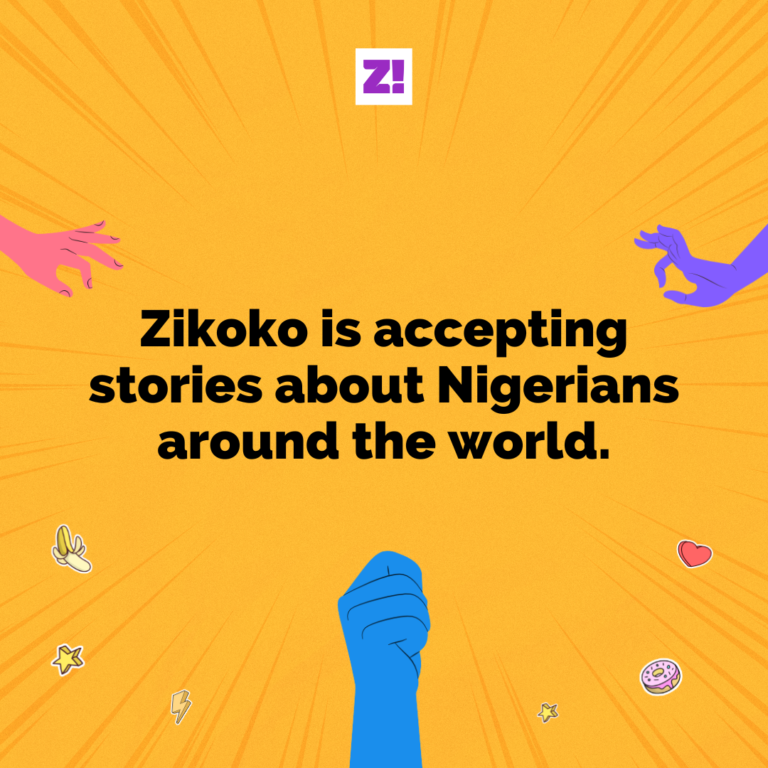In January, I packed two bags, hired a cab for ₦110k and moved to Cotonou with a friend. We’d had a couple of rough months and needed a break from Lagos.
Lagos wasn’t a city interested in my needs. I needed electricity, it gave me an anorexic power grid. I asked for an apartment close to work, and I lost my rented apartment to new house owners. Lagos was like a lover who ghosted once you started to want things. I needed better. Enter Cotonou.
I would’ve gone anywhere – as long as I had electricity and the air was cleaner. But I chose Cotonou because it was four hours away by bus and I could finally use my dusty passport.
Cotonou offered me three things in the first week we moved: 24/7 electricity, a clean city, thanks to cleaners who wiped the city at 2 a.m., and an apartment by the beach for the same price you’d get a boxy mini flat in the heart of Lagos mainland.
At a party, weeks later, when I explained this to a new friend who asked why I was in her city, she contemplated my analysis for a few seconds, then said, “Nigerians used to come to Benin Republic for trade or school… now they just come.”
It was my turn to contemplate. She wasn’t wrong. Nigerians at Dantokpa market, the biggest market in West Africa, may have settled in Cotonou for trade, but I’d learnt about a growing community of Nigerians with mostly flexible jobs, who, like me, had just come. What were their reasons? How did they decide?
Jite, a friend of mine, is one of these Nigerians. She’d spent her 20s in Awka and Nnewi, and loved their “small-townness”. Cotonou reminded her of those places. Friendly, quiet, with a passion to do very little.
“That jet feeling you get in busy cities doesn’t exist. If you go buy something and they don’t have change, you better just stay and wait. If the woman selling fruits has three people buying something, she’d attend to each person one after the other, not at the same time. Everyone is fine with that.”
During a five-minute stroll the evening I arrived, she told me to tone down my “Lagosness”. We’d been tearing through the street as though we were being chased, and she’d realised she was starting to pant. We laughed about it.
In her late 30s, Jite’s priority was peace of mind. Since 2020, before the move to Cotonou, Jite had been considering moving out of Nigeria. She, however, knew she didn’t want to move to a “white people country”.
EndSARS, the protest against police brutality was the trigger. “Something broke in me,” she said. She’d been a managing editor at a publication in Lagos for three years, and she quit. Six months later, she was in Cotonou for a friend’s birthday party, where she fell in love with the city. When she did make the move, she settled in quickly.
Networks
To enjoy a city, you need to understand how it works, and Jite had lived in Cotonou long enough to build a network. She had a guy and hack for everything. A guy for changing money into her Mobile Money (MoMo) account, which she used for transactions in shops on the streets; she knew what fruit seller spoke Yoruba, the fastest way to get to Lagos and back, how much internet data would last the month (25k, 75gb unlimited, the data cap lasts two weeks at best).
In my first week, Jite pointed out places and people I should know to have a good time: Her group of friends with whom she met once a month and checked out new places with, KaleBasse for the sensual, soft, Kizomba classes (we never went), the restaurant by the beach with tasty Bissap and a grilled Barracuda that melted in your mouth. She reminded me not to dress like a hippie when we prepped for a night at the hotel rooftop where a Nigerian singer named Gracia hosted live sets. “If you are black, you need to look wealthy in certain places to avoid disrespect.”
Loneliness is a byproduct of relocation, and people find moving to new cities or countries difficult because of the distance it creates between loved ones. When I asked Jite how she stays connected to her friends and family in Lagos, she told me she saw them more now than when she was in Lagos.
Since Jite started as a comms manager in a hybrid company in February 2022, she has visited Lagos once a month; she only has to be at the office once a month, so she takes a boat ride from Porto-Novo to CMS. The trip is two and a half hours. On these trips, she visits her mum and friends.
On our first night at the hotel rooftop, Jite introduced me to Ade, and the first thing I noted was that he spoke French to the waiter when he ordered a Mojito. For a second, I wondered if I could trust Cotonou bartenders with a glass of Moji baby, but I gestured for a Beninoise instead. As we drank and listened to Gracia belt Adele songs, he told me he’d lived in Cotonou for three years and knows the best spots. I’d meet Ade at various times in the following weeks. Twice at Jite’s for an evening of enjoying her meals and once at Erevan, the biggest supermarket in Cotonou. On one of those meets, we planned to visit one of his favourite spots: La Pirogue.
27-year-old Ade didn’t find settling into a new place with no friends as simple as Jite. Born in Shomolu to a strict dad who didn’t allow him to spend the night at anyone’s house – friend or family — he was shocked by his decision to move to a new city. He’d visited Cotonou for a short trip, a four-day work retreat in September 2021, and on his first night, he fell for the city.
“The time was 11 p.m. and everywhere was alive. I got to learn about the culture. For example, how it’s completely normal to have kids before getting married.”
Ade wasn’t averse to big decisions. He dropped out of the University of Ilorin in 2016 because he hated his course, taught himself to create websites with a friend’s laptop, and started an unsuccessful coaching business. Moving to Cotonou would be the fourth biggest decision in his life.
When I asked why he came, his reason was that he felt alive in Cotonou.
“I remember the moment I decided to move. I returned for another work retreat in December and found myself extending my trip. It was supposed to be for a weekend, but I stayed for two weeks. One night at a Sodabi joint, I immediately texted my mum, ‘I’m moving here.’ She freaked out. Had I considered the language, people, all the barriers? I hadn’t, but I didn’t tell her this. In fact, I had just paid rent for my apartment in Lagos.”
Where to live in Cotonou was easy to figure out. His boss ran their office in his home, and there was space for Ade. But the next three months tested him.
Building new communities
The idea of moving to a new city comes with the daydream of choices unaffected by previous folly. Everything is fresh, exes are not one Friday night-out away from tearing open new wounds and the prospect of getting to know yourself some more is electrifying.
You meet new people, find new spots. There are decisions to be made about everything from your hair salon down to your biscuits.
In reality, all of this was work, hard mental work that Ade, who hadn’t stayed longer than two weeks in a different country, was unprepared for.
“My first week was great. I was excited, checking out everywhere, taking pictures of everything. Second week was also great. I was working with my colleagues face-to-face as opposed to using virtual conferencing tools. From the third week, I started struggling.
“I realised I had to make new habits. If I felt low or had to talk, who would I go to? Living at work also didn’t help me. Even when I was done with work, it felt like I was still at work — the office was four doors away from mine.”
The skill that proved most useful to Ade was his ability to just get into things. Just like he decided to move after a shot of hard liquor, once he knew he had to learn French, he spent time outside till it made sense; he wanted to try new food, so he did.
“I’d jump on a bike and tell him to move. He’d be like, “Quel quartier?” I’d say just go. If I saw a place with a lot of light, I stopped.
“Paying attention to how places made me feel also helped. I found Luxury Lounge, the beach restaurant that helps me when I’m feeling overwhelmed. I also made friends to help me with my struggles here. They have context about how the people here are like and can give me contextual advice when I need help.”
In three years, Ade now had a network of Nigerian friends he met at places like Jite’s rooftop, friends from work and an aunt he found had also moved to Cotonou. These people, finding new places to visit and work keep him grounded. It took Ade about a year to settle fully into Cotonou.
When Life Gives You A Beninoise Passport
27-year-old Eli was born in Cotonou and moved to Nigeria when his dad’s trading business started to fail. We were eating bowls of ice cream from Ci Gusta, the best ice cream spot in Cotonou when he told me about his parents, a dad who moved to Cotonou in the mid-80s to expand his business and a mum who moved with his dad to build a family. Eli’s voice was soft and measured, unlike mine which was loud, competing with the music playing above us.
Eli’s dad left his import-export business in Abia, a state in South Eastern Nigeria when the Benin Republic opened its ports in the mid-80s. This is the story Eli was told to explain his Beninoise passport. His dad imported fabric from Gabon to Benin Republic, then exported them from Benin to the Netherlands. His business grew, and he built a house. He switched to importing clothes, towels, and fabric from Europe and selling them in Benin. When Eli was two, they moved to Lagos, and a year later, his dad was back in Abia State to continue his business.
“It was too late to be ‘Nigerian’. I was already in love with Cotonou,” Eli told me. He was back at the Cotonou house every school break, and once done with secondary school, he decided it was time to return. Eli had a plan.
“I told my mum we should come back, and she agreed. She also missed the calmness of Benin, and we still had a house. She moved back with me.”
Eli loved the city and the opportunities his passport affords him. “It’s very easy to get admission into universities here. Once you have 5 C’s in your O’Levels, you pay for a form, fill it, and you’re in. The quality of education is good, but the discipline is poor. No one will tell you to attend classes or punish you for not attending. So the bright students are very bright and the dull students are very dull. It’s entirely up to the students to succeed.
“I was a serious student. I studied Economics, and now I want to do a Masters in Social Work. I’m trying to transition because I want to travel. I’d like to do social work in a clinical setting, vulnerable people – giving care to people who need it. I’m working in a clinic now so I can do that.”
Johnny Just Come
Most Nigerians I met in Cotonou are fond of Jite, and that’s because she’d either convinced them to move down or they tasted her cooking. Jite hosts a once-in-a-while hang-out on the rooftop of her house. I’m eating yam and palm oil sauce on this rooftop when I meet Runor, who’d been in Cotonou for three months and was house hunting. He told me he came for the quiet.
Runor preferred not to think about Lagos, where he ran his generator daily because his apartment belonged to the section of his estate with low current electricity, and he had to pump the entire compound’s water daily because no one else would do it.
From him, I found out how much it cost to get a place. “The way these people build their houses can be very funny.” We watched a video of an apartment where the restrooms are outside and there’s no roof from the living room’s door to it. “What if it rains?” He bends his mouth in disapproval, but his forehead isn’t creased. It’s almost like he’s been enjoying the hunt. Runor knew he was very picky, and also knew that was a privilege he could only have in this city.
“I found a 2-bed with a small bathroom for CFA 85k. I found a two-bedroom place with a balcony. It costs CFA 20k per month. CFA 1.4m a year. One agent sent me a 3-bedroom flat for the same ₦120k. They showed me a one-bedroom with the toilet and kitchen in the same space, so I don’t ask for a one-bedroom again.”
At the time, CFA 1k was changing for ₦850 at Ajali, Dantokpa market area.
Runor was waiting to settle down to really experience the city, and with the options he found weekly, he’d be ready soon.
There are many reasons to enjoy Cotonou during a two-day work retreat, a month or three years. Everywhere is 20 minutes away, there’s 24-hour electricity, and close to the airport is an Amazonian statue I never visit because what if it falls on me?
For me, it’s my apartment.
My apartment is a two-storey white building which houses tenants I don’t hear or see. Security is a man in his late forties with whom I practise my bonjour, bonsoir, a demain. Francis is also the cleaner, gardener, and upholsterer of things.
He tries to teach me basic French, and I fail most times.
“Bonsoir madame, ça va?”
“Bonsoir…”
“No no. You say “ça va bien, merci. Et tu?”
I repeat, and I’m rewarded with a smile, then disinterest. I cannot bear to fail him.
Two months of this, and I still stutter between je vais bien and ça va bien, et tu and et toi. I’ve been religious with Duolingo, but tongue-tied in actual conversation. I know what it means to be happy — contente — but have no idea what conversation would lead to me saying I was happy, and if anyone would be kind enough to place one word after the other so I could follow. Very unlike the Duolingo owl, I chicken out.
In the middle of March, a week after Nigeria’s gubernatorial elections, we have a soiree on Sunday evening. There’s poetry, clinking glasses filled with zobo wine, a charcuterie board by Lara, my landlady; and art installations to mull over. Runor tells me he’s found a place. My struggles feel a globe away, even though I could get to them in four hours by road and two and half by boat.
I contemplate the people in the room, some here to fill or assuage something, each looking for a sense of balance or just a space to dream — a space that fosters dreams. I wonder how long it’d last, how long just until the stain of being Nigerian became a difficulty they had to contend with even here. We focus on the lull of the beach, Dwin the Stoic’s “God Knows Where”. Now is not the time for wondering; it’s for being contente.
Do you have a story about Nigerian communities around the world? You can contribute to this series. Click here for our guidelines.





